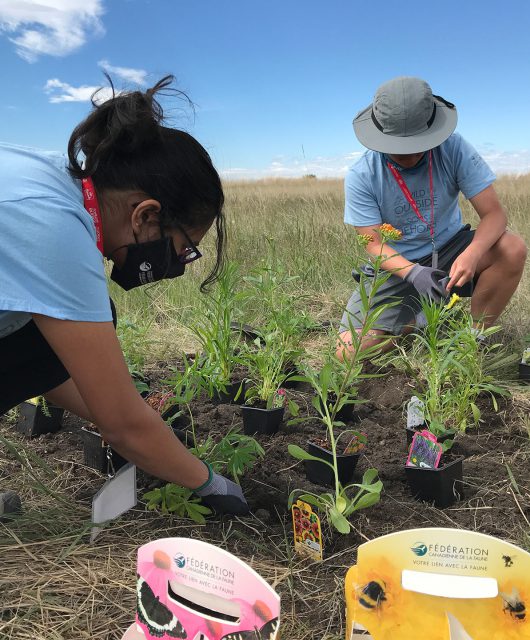As we approach the crucial discussions at COP 16, the Canadian Wildlife Federation (CWF) is calling for a bold and comprehensive global response to the biodiversity crisis, with a particular focus on education.
Recognizing the pivotal role of education in transforming global attitudes and actions toward biodiversity conservation, CWF is urging world leaders to integrate education at the core of the Kunming-Montreal Global Biodiversity Framework (KM-GBF).
Key Recommendations
- Adopt a Global Plan of Action on Biodiversity Education: CWF supports the development of a Global Plan of Action for education on biodiversity. This plan, led by CWF, UNESCO, IUCN, and the Intergovernmental Science-Policy Platform on Biodiversity and Ecosystem Services (IPBES), will encompass both formal and informal education. It will outline clear goals, activities, timelines, resource requirements, and partnerships needed to drive transformative change by 2030
- Align Education with Global Environmental Goals: Biodiversity education must not exist in isolation. CWF advocates for an integrated approach that aligns biodiversity education with broader environmental issues such as climate change, ocean health, and sustainable development. This integration will not only lead to better educational outcomes but also improve public health, access to green jobs, and promote active global citizenship
- National Biodiversity Strategies and Action Plans (NBSAPs): CWF calls for the integration of biodiversity education into National Biodiversity Strategies and Action Plans. This will ensure that biodiversity education is prioritized at national levels, leading to empowered citizens who actively engage in conservation efforts through programs like citizen science.
- Ensure Inclusive and Equitable Education: CWF emphasizes the importance of inclusive educational strategies that reach diverse groups, including youth, women, Indigenous communities, and people with disabilities. Only by engaging all segments of society can we create a robust and sustained movement for biodiversity conservation
- Secure Funding for Biodiversity Education: Finally, CWF is advocating for the establishment of a funding mechanism to support biodiversity education initiatives in countries that lack the financial resources to implement these critical programs
The time for action is now. CWF believes that through a concerted effort on biodiversity education, we can foster the global changes necessary to halt and reverse biodiversity loss by 2030. COP 16 presents a unique opportunity to ensure that education is recognized as a key driver of this transformation.





